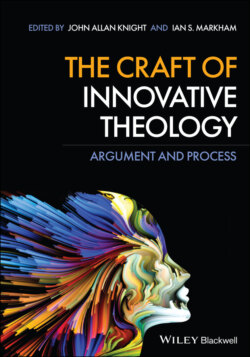Читать книгу The Craft of Innovative Theology - Группа авторов - Страница 43
Incarnation and Jesus
ОглавлениеElection is a mystery. It was the Jewish people who were chosen; it was Mary the mother of Jesus who gave birth to the Christ. Jesus was able-bodied; Jesus was male; and Jesus spoke Aramaic and was heavily shaped by a Jewish apocalyptic worldview. One important purpose of this exercise is that once one recognizes that conceptually God could have taken the form of a person with Down’s, then we can liberate our study of the New Testament and let Jesus be Jesus.
The joy of this argument is that Bart Ehrman, the New Testament scholar, could be right and Jesus could still be God. Once we let go some of the classical expectations that we have of the Incarnation, we are free to be gentler with Jesus. So Bart Ehrman sees Jesus as an apocalyptic prophet. According to this picture, Jesus saw himself as an agent, who is ushering in the end of the age. It was to be a literal kingdom of God, where the forces of wickedness will be overthrown, and a new set of values will dominate the community. Now if this picture of Jesus is right, then it is long way from the omniscient Jesus of the classical Christology. For Ehrman, Jesus did not think he was God; he was not omniscient; instead, he was mistaken in many ways. However, if the Incarnation of the Wisdom of God does not require an omniscient Jesus or even a Jesus as intelligent as Einstein, then perhaps this “deluded” Jesus might still be that embodiment of God, that is, once we concede that there are things of which Jesus was not aware, one of which could be his own divinity.
Like every human being, Jesus is limited by the culture into which he is born. Yet those closest to him recognized in him an encounter with God. They also struggled with their expectations. The idea of “messiah” carried a set of connotations that Jesus constantly evaded. However, as Larry Hurtado has pointed out, these monotheistic Jews still found themselves worshiping the God embodied in this person.31 For all the limitations of the man, the divine came shining through. Questions about the intelligence of Jesus or whether Jesus was inaccurate in his predications about the end of the world or even the knowledge of Jesus about his own status and access to the Father are now relegated to a secondary status. Indeed one could argue that it is important for the embodiment of the Divine Sophia to have these limitations.32 The coming of the Spirit promises to take us further into the mystery of God; Jesus is a definitive disclosure of God (a control on our theology), but not a comprehensive disclosure.
